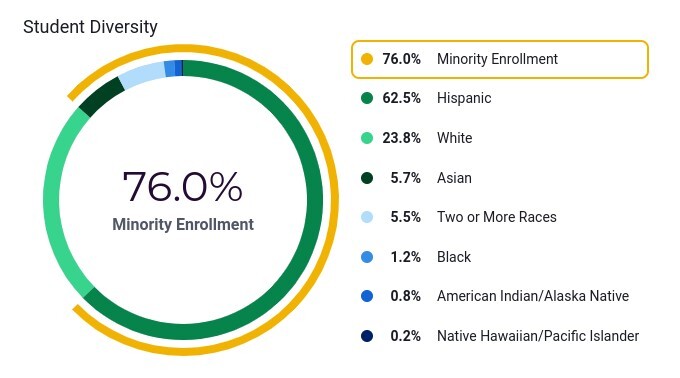As part of the 1% of Redwood, students Starlet Vaughn, Alyssa Vasquez, and Jordan Powell speak on the struggles they face as black students within Redwood.
By: Hope Murapa
Black students at Redwood only make up 3% of the school population, and that’s including biracial students. Excluding them, the black population of Redwood is closer to 1%. Finding another black student at Redwood is comparable to finding a single speck of pepper in a tablespoon of salt.

While the world has improved much in the past century, decade, year, month even, there are still gaps that have not been bridged. This is not necessarily anyone’s fault, but it is imperative we acknowledge the experiences faced by different demographics.
“It’s hard,” says Star Vaughn, ’26, in regards to her overall experience at Redwood, “I don’t think I fit in as I would have hoped when I got here, I thought it would be a lot more welcoming.”
Vaughn says, “You can tell that some people are okay with black people and others aren’t.”
Because there is such a small black population at Redwood High School, it often leaves black students being the only black person in the majority if not all of their classes.
This experience is difficult to confine into simple words but the best way to explain this experience is to imagine it’s like being a senior joining a new school in a new state. You are not able to connect as easily with your peers who have grown up together. This feeling goes away eventually, but the isolating feeling of being the only one of your color in a classroom doesn’t.
Vaughn recalls her experiences as the only black kid in her classes, especially English class, “if the n-word is in the book, they turn to you and look at you, and they’re not discreet.” Because she is the only black person in her class she is forced to face the uncomfortable feeling alone and without support. She is not the only black person at Redwood who has faced this, Alyssa Vasquez, ‘26 says, “It’s a little bit embarrassing to just, like, sit there while everyone’s looking at you.”
Many might not understand why the n-word or just black people being mentioned in general is so uncomfortable for black students. To put it simply, it can make you feel extremely silenced when the n-word is spoken so casually even if it is for “learning” purposes, because you know if you were to say anything you would be told it’s for learning purposes or it’s just a book.
It shifts your perspective and view of the teachers in these instances because you know how easily it would have been for them to skip the word. It can often feel like they’re saying it to spite you, because, in this day and age, there is no justifiable way for a teacher to claim innocence on the subject.
The classroom isn’t the only place Black students can feel silenced, disrespected, or just uncomfortable. It happens outside the classroom and arguably the disrespect is worse.
Vaughn recalls names she’s been called casually, she says, “I had this kid call me a coon.” Which was a word she didn’t even know until she talked to her mom about the instance.
Jordan Powell ‘27, another black student at Redwood recalls being told things like, “You don’t belong here…go back to your homeland…we don’t need another monkey in the zoo…the Fresno Zoo is calling for their missing monkey.”
Vaughn and many other black students have also encountered the n-word on multiple occasions whether it’s said directly to her or around her.
Redwood isn’t the only local high school that faces these issues in fact compared to the other schools Redwood’s problem with racism is tame. A black student at El Diamante was allegedly taunted with a whip at school, a teacher also wrote the n-word on a whiteboard to “lessen” the impact of it and to say it was just a word. The n-word was also written on the outside of a BSU meeting at Golden West. Instances like these are far from uncommon and that in itself is an issue that needs to be addressed.
Black students should just tell a person in authority when they encounter these situations. This seems like the most obvious answer. If only it were a solution that actually worked.
Vaughn says, “I have told my PE teacher that I was called the N-word, and she kind of just let it pass,” to make it even worse the teacher also diminished the importance of the situation by saying, “Kids will be kids,” because of this reason Vaughn has given up going to teachers when facing discrimination.
Powell has faced a similar experience with teachers, he says, “Teachers don’t pay attention to what’s happening it’s like they don’t care.”
This is an understandably very frustrating experience for black students because, from a very young age, they are expected to toughen it out through experiences that can be dehumanizing and draining especially as a kid just trying to get through the day.
This is not to say that Redwood is all bad when it comes to this area because the truth is it is not. The majority of Redwood is not racist, though few instances can sour the full experience of Redwood easily. Many black students at Redwood recall their positive interactions with others, like getting compliments on their braids, complexion, skin color, etc.
Vaughn says that while she feels the good outweighs the bad she does wish, “people would try and understand that no matter your skin color, like, we all have feelings and it kind of sucks being treated like as if you’re less than.”
Tags: features, rangers, Redwood, redwood gigantea, redwood high school, redwood journalism, redwood rangers, rhs, visalia ca

